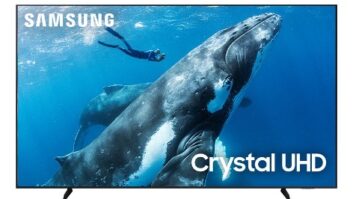New York — A new service from Fusion Telecommunications International has risen to challenge Skype’s free calling while Microsoft’s Windows Live Messenger (which offers inexpensive PC-to-landline calling and free PC-to-PC calls) went live today.
These two moves underscore the dramatic shifts occurring in the VoIP market. Fusion’s new service was launched yesterday. Under the “efonica” brand, subscribers can call each other for free using their existing landline or mobile telephone numbers with either efonica’s PC softphone client, third-party IP phones or traditional phones with an adapter. The service works on both Broadband and dial-up Internet connections.
According to Fusion, the service is primarily targeted at users who make frequent international calls, though it can also work nationally. After registering with the service online and entering in their traditional landline or mobile phone numbers, users are assigned the “worldwide Internet area code” (10), which is then dialed before the familiar phone number. Fusion calls the combination of its Internet area code and an existing phone number an “eNumber.”
For calls to be free, both standard phone numbers must be registered with Fusion, and the Internet area code must be dialed.
A user dialing from the PC could then reach other efonica users on their mobile or landline phones.
The Fusion service supports caller ID with name, call waiting, three-way calling, call forwarding, call transfer, call hold and do not disturb, free of charge. The company will also offer a premium service — efonica Plus — that offers voicemail, the ability to call non eNumbers from the PC and other VoIP features for an additional charge.
For its part, Microsoft announced the official launch of its Windows Live Messenger service today. Alongside a host of features, Live Messenger gives users the ability to place calls from the PC to landline or mobile phones for 1.9 cents per minute through a partnership with Verizon; AT&T struck a similar deal with Yahoo! for its PC VoIP service. It also provides free video/voice conversations between Messenger users.
Philips and Uniden have announced cordless phones designed to work with the new Windows service, hoping a chunk of Live Messenger’s reported 240 million global users can be enticed to accessorize for the new VoIP features. Microsoft has also introduced Web cams to support the video features of the new Messenger.
The on-rush of competition has forced Skype to kill the fees for its SkypeOut calling feature, which enables Skype users to dial traditional landline and mobile phones from their PCs. The price compression has even cascaded toward to the non-PC services. Vonage announced last month that it was including several international locations under its “all you can dial” pricing plans.
And just as a host of companies are jumping on the PC VoIP bandwagon, Skype may be jumping to the television. The London-based software development firm Oregan Networks announced today it had developed a solution which could route Skype message alerts and caller ID information to televisions. Oregan Networks will market the solution to network operators and set-top box makers.













